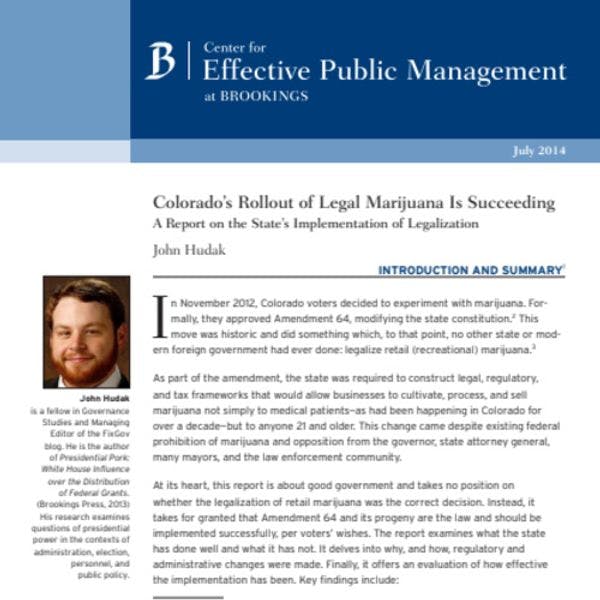Colorado’s rollout of legal marijuana is succeeding: A report on the state’s implementation of legalization
In November 2012, Colorado voters decided to experiment with marijuana. Formally, they approved Amendment 64, modifying the state constitution. This move was historic and did something which, to that point, no other state or modern foreign government had ever done: legalize retail (recreational) marijuana.
As part of the amendment, the state was required to construct legal, regulatory, and tax frameworks that would allow businesses to cultivate, process, and sell marijuana not simply to medical patients—as had been happening in Colorado for over a decade—but to anyone 21 and older. This change came despite existing federal prohibition of marijuana and opposition from the governor, state attorney general, many mayors, and the law enforcement community.
At its heart, this report is about good government and takes no position on whether the legalization of retail marijuana was the correct decision. Instead, it takes for granted that Amendment 64 and its progeny are the law and should be implemented successfully, per voters’ wishes. The report examines what the state has done well and what it has not. It delves into why, and how, regulatory and administrative changes were made. Finally, it offers an evaluation of how effective the implementation has been.
Keep up-to-date with drug policy developments by subscribing to the IDPC Monthly Alert.
Downloads
Topics
Regions
Related Profiles
- Brookings Institution
